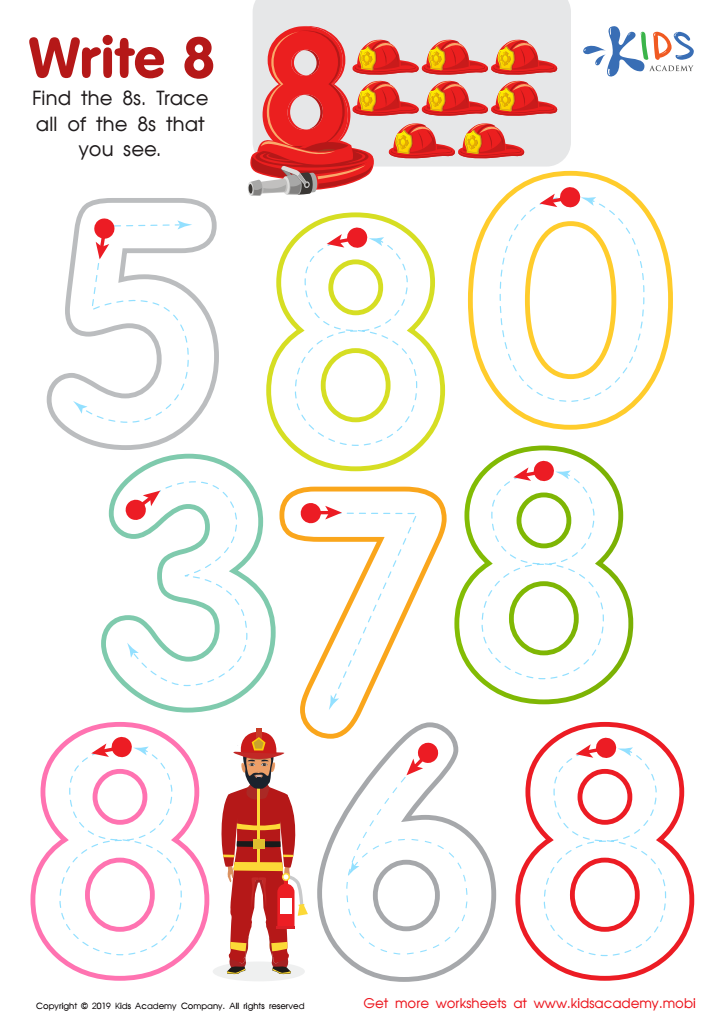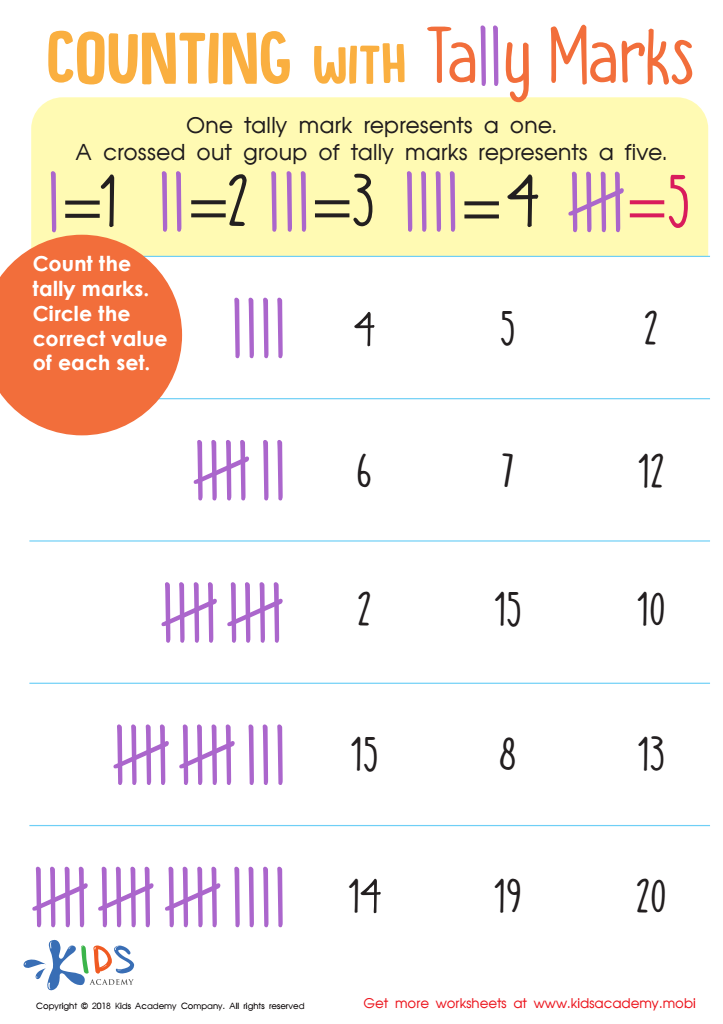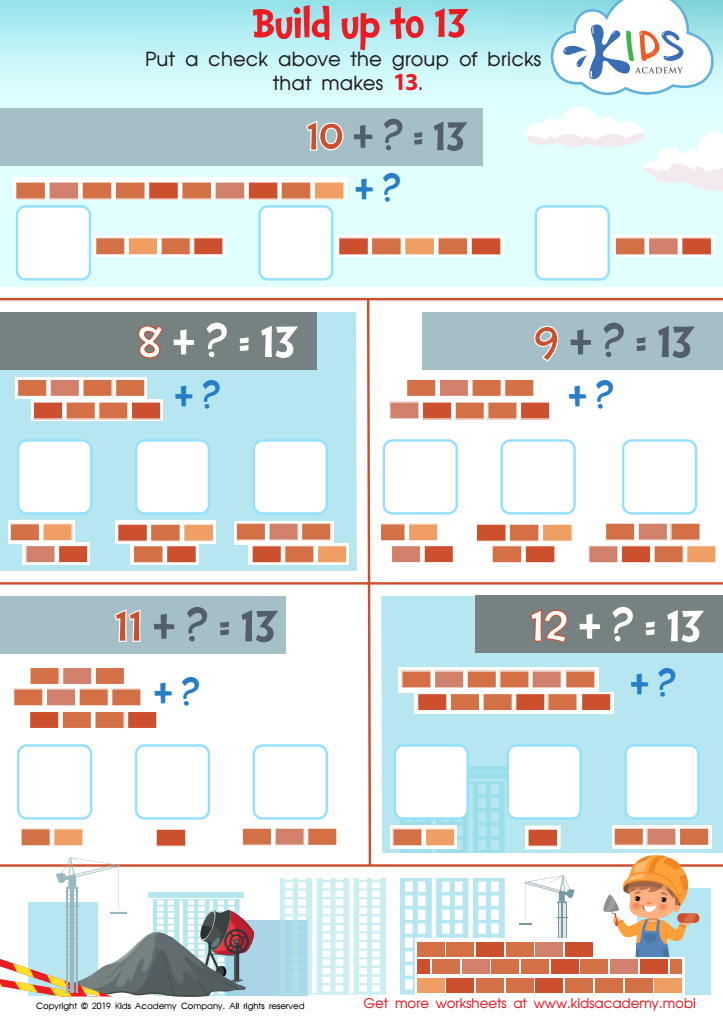Number representation Worksheets for Ages 3-6
3 filtered results
-
From - To
Explore our engaging Number Representation Worksheets designed for young learners ages 3-6! These interactive resources help preschool and kindergarten students develop essential numeracy skills through fun activities. Our worksheets focus on visual representation of numbers, helping children to identify, understand, and effectively use numerical concepts. With colorful illustrations and age-appropriate tasks, kids will enjoy counting, matching, and more while building their confidence in mathematics. Ideal for classroom use or at-home learning, these worksheets foster a love for numbers in a supportive and playful environment. Download now and provide your child with the foundational skills needed for future math success!


Write 8 Worksheet


Counting with Tally Marks Worksheet


Build up to 13 Worksheet
Number representation is a critical aspect of early childhood education, particularly for children aged 3-6 years, as it lays the foundation for mathematical understanding and cognitive development. At this crucial age, children begin to grasp the concepts of quantity, size, and numerical relationships. Understanding different representations of numbers—such as physical objects, pictorial depictions, and symbolic notation—helps children develop a holistic view of mathematics.
Parents and teachers should care about number representation because it enhances children’s ability to recognize and manipulate numbers in various contexts. When children encounter numbers through diverse formats, they are encouraged to engage with mathematics thoughtfully, enabling them to build problem-solving skills and promote logical reasoning. Capacity to visualize and represent numbers aids in their later ability to perform operations, make comparisons, and understand measurement.
Additionally, early positive experiences with number representation foster a lifelong positive attitude toward math, reducing anxiety and building confidence. Engaging with numbers through fun activities like counting games, storytelling, and hands-on learning solidifies these concepts. Overall, focusing on number representation strengthens a child’s foundational math skills, promoting academic success and real-world application during their later years. This underscores the importance of active participation from parents and teachers to support this developmental phase.
 Assign to My Students
Assign to My Students




.jpg)
.jpg)













